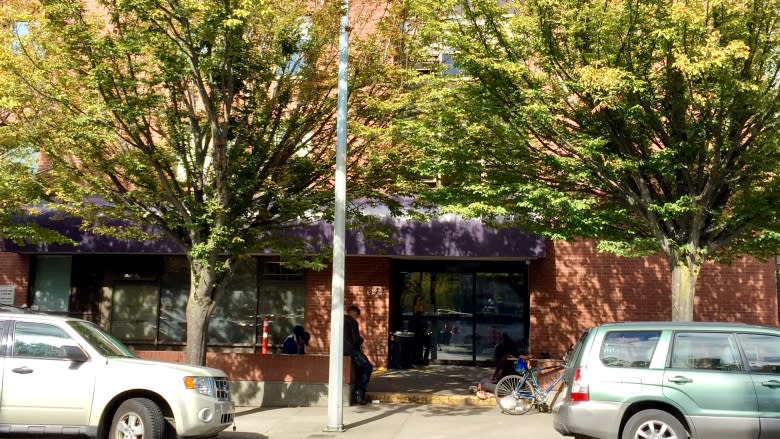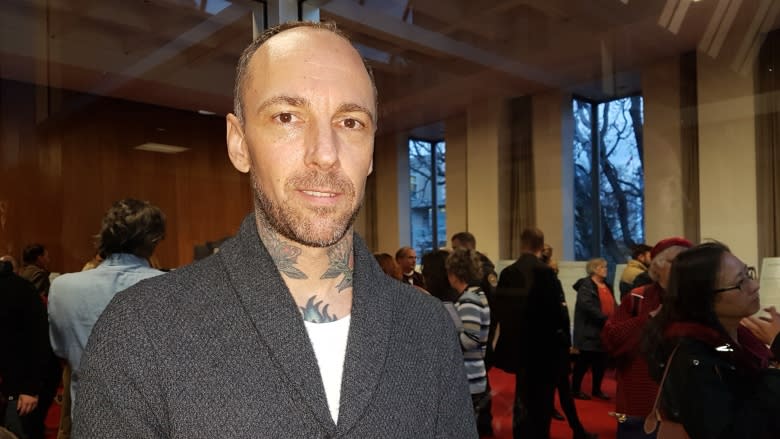Former Victoria tent city dwellers unhappy with transitional housing
A group of residents claiming to represent former residents from Victoria's tent city is calling for improvements to their transitional housing space.
In an open letter, the Super Intent City Society listed concerns about services, access, surveillance and safety at the Johnson Street facility run by the Portland Hotel Society.
Doug Swait, who lives in the residence and is president of the society, says one of his biggest concerns is the locked stairwells. He says floors are often locked down and there are no easily accessible emergency exits.
In the letter, the group writes about feeling like living in a jail cell.
"We have to ask permission to enter and exit our home. We are under constant surveillance with video cameras on every floor."
Another complaint is the lack of kitchen facilities.
"We have two meals a day. They promised us our own cooking facilities and they've just sidestepped that and pushed these meals through," Swait said.
"We've got one stove downstairs but 140 people. One stove isn't good enough."
PHS defends management
Andy Bond, the senior director of housing and programs at the Portland Hotel Society, defended the system of lockdowns, saying it was implemented partially for safety.
"We're in the midst of an opioid crisis. There are lots of people using drugs living in buildings. We don't want people getting into stairwells, people who are trying to prey on people in the building or trying to sneak in," he said. "Generally, certain areas of the building are closed off. It's very common."
As for kitchens, Bond said he was limited in what he could do.
"Ideally, people would like a kitchen on each floor but we're limited on being able to do renovations to build new kitchens at this point in time."
Bond says he understood that the transitional facility might not be the perfect fit for all residents and said he would be meeting with Swait and other concerned residents.
Nevertheless, he said the vast majority of residents are happy with the housing and are very grateful.
"I don't think that we've had one person leave because of these sorts of issues," he said. "I would say that there's not a lot of options for people ... We are trying to work with people who don't need this level of support to try and get them into other housing."
Tense situation
The city of Victoria has been grappling with how to adequately house the over 300 tenants from the former tent city that spread across the front of the city's courthouse lawn for nearly a year between November 2015 and August 2016.
The relocation of tenants into alternate housing facilities has not been smooth.
Some residents have said the arrival of former tent-city residents has caused an increase in public drinking and drug use and noise and garbage in their neighbourhoods.
Some former tent city residents have complained about a lack of services and ill-treatment in their new housing facilities.
As for Swait, who has been homeless for a few years and lived in the tent city, the big issue remains a lack of affordable housing in the city.
"Most people are always looking for another place, anything better than where we're at," he said. "If we have to, we'll get another tent city going."
With files from On the Island



